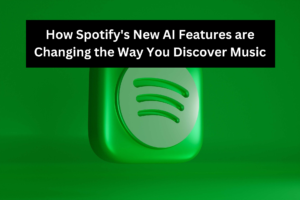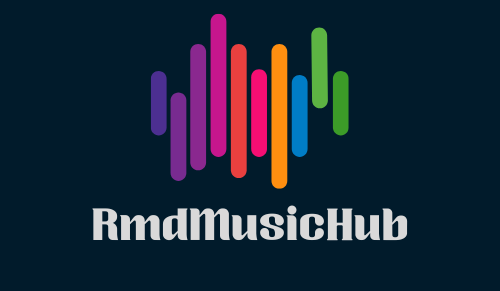Music streaming platforms have been an integral part of our daily lives for years, but none have quite captured the essence of personalization and discovery like Spotify. With over 500 million active users globally, Spotify continues to push the boundaries of music technology. Recently, the platform has taken another giant leap forward by integrating advanced AI features that are reshaping the way users discover and engage with music. In this article, we delve into how Spotify’s new AI-driven tools are changing the music discovery experience for millions.
A Brief Overview of Spotify’s AI Journey
Spotify has always been at the forefront of leveraging technology to enhance user experience. From its iconic Discover Weekly playlists to Release Radar and Daily Mixes, Spotify has relied heavily on machine learning and data analysis to curate music tailored to individual tastes. But with the advent of new AI technologies, such as generative AI and advanced natural language processing (NLP), Spotify is now redefining personalization and discovery.
Enter Generative AI
Generative AI, which is capable of creating new content, has become a major focus for Spotify. It allows the platform to generate hyper-personalized playlists, design immersive listening experiences, and even assist artists in reaching new audiences. Unlike traditional machine learning algorithms, generative AI can analyze vast amounts of data and create entirely new connections between genres, moods, and even emerging musical trends.
NLP and Voice Integration
Another significant advancement comes in the form of NLP and voice recognition. Spotify’s AI now enables users to interact with the app using natural conversational commands. Whether you’re asking for “upbeat jazz from the 70s” or “songs for a rainy day,” Spotify’s AI can understand your intent and deliver highly specific results.
Enhanced Personalization
Spotify’s personalization tools have reached a new level of sophistication. Here’s how they’re transforming the way users discover music:
1. Dynamic Playlists
Dynamic playlists powered by AI offer a real-time evolution of music curation. For instance, Spotify’s AI can now adjust playlists based on your current mood, location, or even the time of day. Heading to the gym? The AI might automatically enhance your workout playlist with high-energy tracks. Having a quiet evening? It could switch to soothing acoustic pieces.
2. Mood and Emotion Recognition
Spotify’s AI can now analyze your listening habits alongside external data points, such as tempo, key, and lyrical content, to understand your emotional state. This enables the platform to suggest music that aligns with your mood or helps you transition into a desired mental state.
3. Multi-Language Recommendations
With enhanced NLP capabilities, Spotify’s AI can now recommend music in multiple languages with greater accuracy. This feature is particularly appealing for global users who enjoy music beyond their native language, making it easier to explore international artists and genres.
AI-Powered Discovery Tools
Spotify’s mission is to help users uncover new music that resonates with them. Here’s how AI is making this possible:
1. Soundtrap and AI-Driven Collaboration
Soundtrap, Spotify’s online music studio, now integrates AI tools that help artists and creators collaborate more efficiently. By analyzing trends and preferences, the AI can suggest melodies, beats, and lyrics that are more likely to engage audiences. This not only streamlines the creative process but also ensures that new music aligns with listener preferences.
2. AI DJ
Spotify recently introduced an AI-powered DJ that takes music discovery to a new level. Acting as a personal radio host, the AI DJ uses your listening history and preferences to curate and comment on tracks in real-time. This feature combines the nostalgia of traditional radio with modern-day personalization.
3. Discover Mode for Artists
Discover Mode is a game-changing tool for artists looking to amplify their reach. Using AI, Spotify allows musicians to highlight specific tracks that align with current trends and listener behavior. This ensures that the right music reaches the right audience, improving discoverability and engagement.
Breaking Genre Barriers
One of Spotify’s most remarkable AI achievements is its ability to blur the lines between genres. By analyzing the sonic elements of tracks, AI can identify similarities between vastly different styles of music. This enables users to explore new genres that they might not have encountered otherwise. For example, a fan of electronic music might discover ambient classical tracks with similar beats or mood.
AI-Powered Genre Mapping
Spotify’s AI creates intricate genre maps that highlight the relationships between different musical styles. These maps help users understand how their favorite genres intersect with others, opening up new avenues for discovery.
Ethical Implications of AI in Music
While Spotify’s AI innovations are undoubtedly impressive, they also raise important ethical questions. How much influence should AI have over our listening choices? Are algorithms overshadowing human creativity? Spotify has emphasized the importance of maintaining a balance between AI-driven recommendations and human curation. The platform continues to work closely with artists, ensuring that AI serves as a tool for enhancement rather than replacement.
User Experience: A Two-Way Street
Spotify’s success hinges on user feedback, and its AI features are no exception. The platform continuously refines its algorithms based on user interactions, ensuring that personalization improves over time. Users are also given greater control over their music discovery experience, with options to like, dislike, or skip recommendations to fine-tune their preferences.
The Future of AI in Music Discovery
The integration of AI into Spotify’s ecosystem is just the beginning. As technology continues to evolve, we can expect even more groundbreaking features, such as:
- Real-Time Mood Adaptation: Playlists that change dynamically as your mood shifts during the day.
- AI-Curated Live Events: Personalized concert recommendations and real-time setlist suggestions.
- Enhanced Social Integration: AI that identifies common musical interests among friends and creates collaborative playlists.
Conclusion
Spotify’s new AI features are revolutionizing the way we discover music, creating a listening experience that is more personal, immersive, and engaging than ever before. By leveraging generative AI, advanced NLP, and cutting-edge machine learning, Spotify is bridging the gap between technology and artistry, making music discovery a seamless and delightful experience.
As these tools continue to evolve, one thing is clear: Spotify’s commitment to innovation ensures that music remains a universal language, connecting listeners and artists across the globe. Whether you’re a casual listener or a die-hard music enthusiast, there’s never been a better time to let Spotify’s AI guide you on your musical journey.



